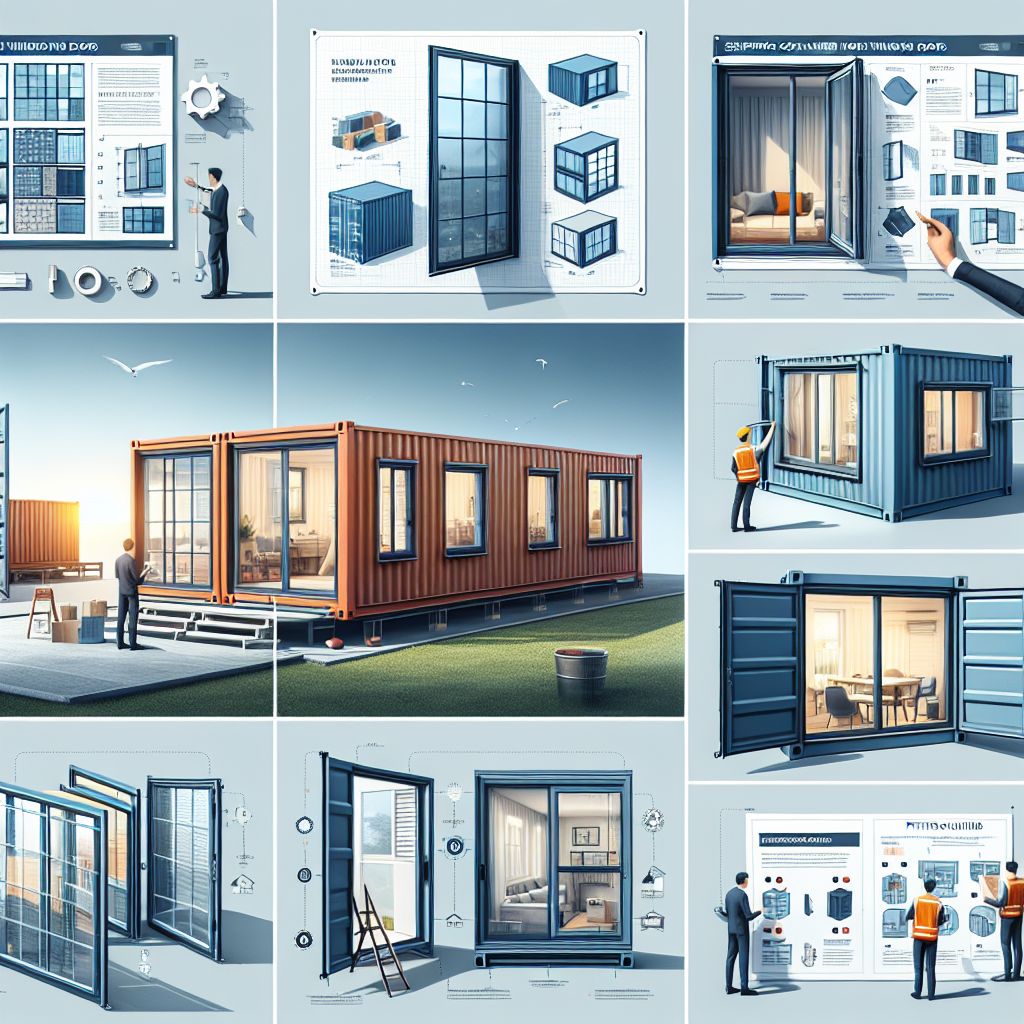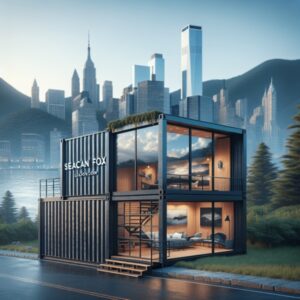
Key Takeaways
- Container Homes are allowed in North Carolina (subject to regulations).
- You must obtain a building permit and adhere to local building codes and zoning regulations.
- Regulations vary for different locations.
Shipping Container Homes in North Carolina
Legal Status of Container Homes
The first question on your mind might be, “Can I legally build a container home in North Carolina?” The answer is a resounding yes.
Most importantly, understanding the legal framework is crucial before embarking on your container home journey. North Carolina’s building regulations are designed to ensure safety and community standards, which means your container home will need to meet specific requirements to be habitable. But don’t let this discourage you; these regulations are there to protect you and your investment.
My Favorite Container Homes Resource
I compared the top 3 Container Home Guides
to discover the ultimate resource!
See my top recommendation here
Building Permits and Regulations
So, you’ve decided to go green with a container home. What’s next? Securing a building permit is your first official step. Here’s a simple breakdown of what you need to do:
- Research local building codes: Each county in North Carolina might have slightly different requirements, so it’s essential to get the specifics for your area.
- Prepare your plans: You’ll need detailed drawings of your container home, showing compliance with building codes, including structural integrity and adherence to fire safety and sanitation standards.
- Submit your application: With your plans ready, submit them along with your permit application to the local building department.
Remember, the permit is your green light to start construction. It’s not just a formality; it’s a safeguard that ensures your container home is built to last and safe for you and your family.
Because each container home is unique, you may encounter specific challenges. For example, some areas might have restrictions on the use of recycled materials, or there may be additional requirements for homes in flood-prone zones. Therefore, it’s essential to have open communication with local officials and perhaps seek guidance from a professional who has navigated these waters before.
Table of Requirements
References:
- North Carolina General Statutes – Chapter 153A: Zoning
- North Carolina Department of Insurance – Engineering and Codes Division
- North Carolina Department of Insurance – Code Enforcement

Building a Safe and Compliant Home
While container homes are innovative, they must still adhere to safety standards. It’s essential to work with engineers and architects who understand the unique aspects of container construction. They’ll help ensure your home can withstand the weather, including the occasional hurricane that can sweep through North Carolina.
Structural Integrity and Code Compliance
Containers are inherently strong, but modifications like cutting openings for doors and windows can affect their structural integrity. Professionals will calculate the necessary reinforcements to maintain safety. Additionally, your home must comply with local building codes, which cover everything from electrical wiring to plumbing systems.
One of the most critical aspects of code compliance is making sure your home is properly anchored to its foundation. This not only provides stability but also ensures your safety during severe weather events.
Emergency Preparedness Specific to Container Homes
Container homes are robust, but like any dwelling, they need to be prepared for emergencies. Here are some tips:
- Install smoke detectors and carbon monoxide alarms.
- Have a well-thought-out evacuation plan in case of fire or other emergencies.
- Keep a stocked emergency kit with supplies like water, non-perishable food, flashlights, and a first-aid kit.
Because container homes can be airtight, it’s particularly important to have good ventilation systems to prevent the buildup of harmful gases.

Frequently Asked Questions (FAQ)
Are there any restrictions on where I can build a shipping container home?
Yes, there are restrictions based on zoning laws, which vary by county and city. It’s crucial to research the specific zoning regulations in the area where you want to build. Some zones may not permit container homes at all, while others may have size, height, or aesthetic requirements. Engage with local planning departments to understand the restrictions and find a location that’s both legally compliant and suitable for your lifestyle.
What kind of permits will I need?
To build a container home in North Carolina, you’ll need:
- A building permit, which requires submitting your construction plans for approval.
- Potentially a zoning permit, depending on local land use regulations.
- Additional permits for electrical, plumbing, and mechanical work.
It’s essential to obtain all necessary permits before construction begins to avoid any legal complications. Contact your local building department for a complete list of requirements.
Furthermore, inspections are a part of the permitting process. Inspectors will check the progress at various stages to ensure the work complies with building codes and permit stipulations.
Can I expand my container home in the future?
Yes, container homes are modular by nature, which means you can expand your home by adding more containers. The key is to plan for expansion from the outset. Design your initial home with structural reinforcements and connections that allow for easy addition of new modules. Always consult with a structural engineer or architect when planning an expansion to ensure the safety and integrity of your home.





